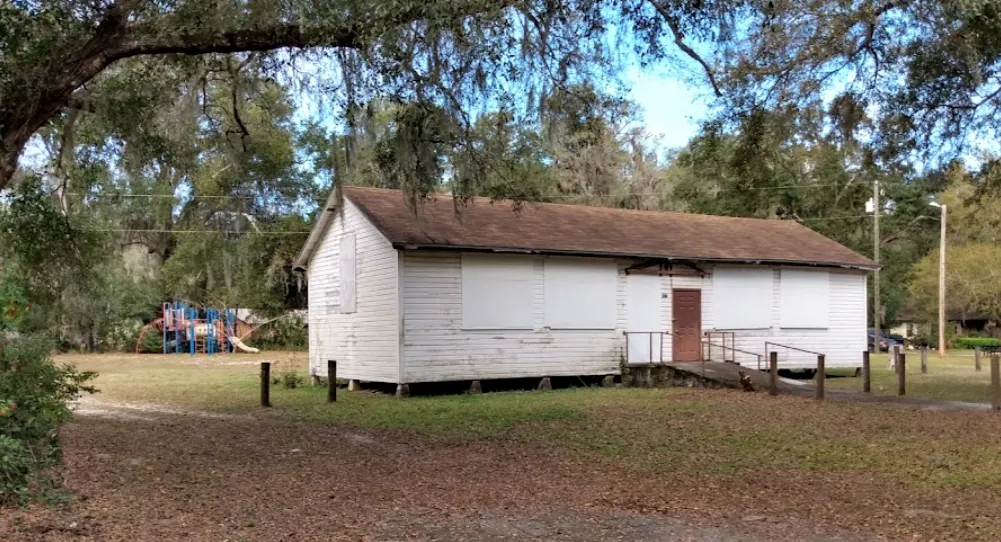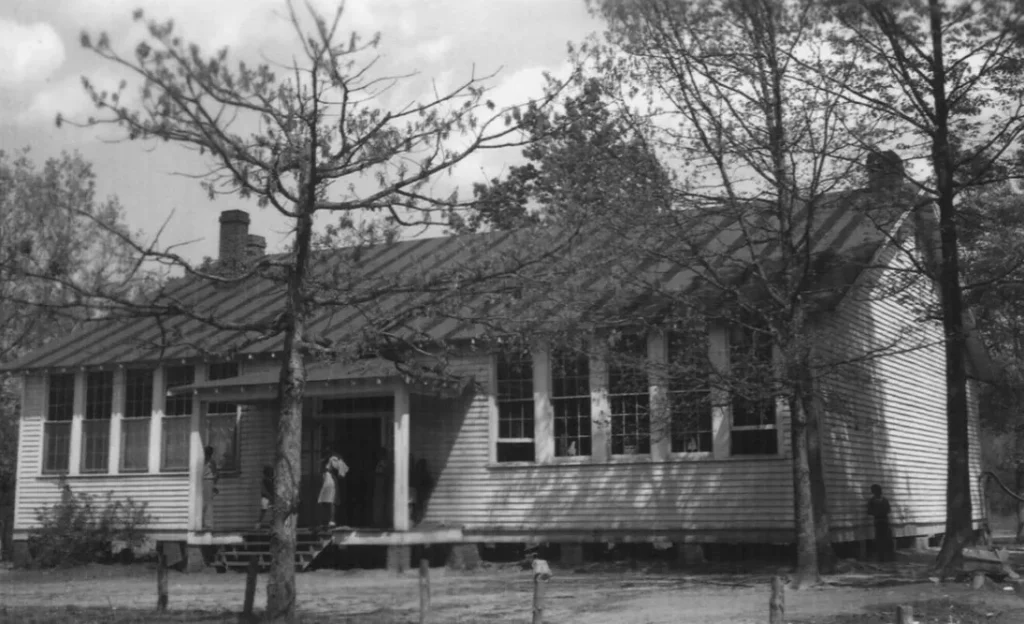Introduction
The Mrs. Geeder Rosenwald School represents a significant chapter in the history of African American education in the United States. Established during a time of severe racial segregation and educational inequality, this institution not only provided education to countless students but also served as a vital community hub. This blog post delves into the origins, significance, and enduring legacy of the Geeder Rosenwald School, showcasing how it became a cornerstone of empowerment and resilience in its community.
The Historical Context of Rosenwald Schools
The Rosenwald Initiative
The Mrs. Geeder Rosenwald School is part of a broader initiative known as the Rosenwald Schools, established in the early 20th century. Funded by philanthropist Julius Rosenwald and spearheaded by educator Booker T. Washington, this initiative sought to address the educational disparities faced by African American children in the rural South.
Between 1912 and 1932, over 5,000 schools were built in 15 states, driven by the urgent need for quality education for African American students. These schools were designed to offer a curriculum that not only met academic standards but also emphasized vocational training, thus preparing students for various career paths.
The Role of the Community
The establishment of the Geeder Rosenwald School was not solely a top-down initiative; it thrived on community involvement. Local residents contributed their resources and labor to construct the school, fostering a sense of ownership and pride within the community. This collaboration ensured that the school was not only a place of learning but also a reflection of the community’s values and aspirations.
The Establishment of Mrs. Geeder Rosenwald School
Origins and Construction
The Mrs. Geeder Rosenwald School was established in [insert location in the United States] in [insert year] with Rosenwald funded school established in honor of a local leader who championed education of the blacks. The school was constructed and planned according to the specifications stipulated by Rosenwald Fund regarding utilization of light, air, and disable access.
Construction was often a communal effort, with local residents donating time and resources. The school was built with the understanding that education was a shared responsibility, and this collective effort became a defining characteristic of the Geeder Rosenwald School.
Architectural Features
The architecture of the Geeder Rosenwald School was practical and functional. Characterized by large windows that allowed natural light to flood classrooms, the design aimed to create a positive and inviting learning environment. The school typically featured:
- Spacious Classrooms: Designed to accommodate multiple students and facilitate group learning.
- Community Spaces: Areas for gatherings, meetings, and cultural events, reinforcing the school’s role as a community hub.
- Vocational Training Facilities: Spaces for teaching skills such as agriculture, carpentry, and home economics.
These features not only catered to the educational needs of the students but also supported the broader goals of community engagement and empowerment.

Educational Impact of the Mrs. Geeder Rosenwald School
Curriculum and Instruction
The Mrs. Geeder Rosenwald School was dedicated to providing a well-rounded education that addressed both academic and practical skills. The curriculum included traditional subjects such as:
- Mathematics
- Reading and Writing
- History
In addition to these foundational subjects, the school placed a strong emphasis on vocational training, ensuring that students acquired practical skills that would enable them to support themselves and their families. Vocational subjects included:
- Agricultural Education: Teaching students about farming practices and crop management.
- Home Economics: Providing skills in cooking, sewing, and household management.
- Trade Skills: Offering courses in carpentry, masonry, and other trades relevant to the community’s economic landscape.
This holistic approach to education aimed to empower students, preparing them for both academic success and practical careers.
The Role of Teachers
Teachers at the Mrs. Geeder Rosenwald School were often deeply committed to their students and the community. Many were local residents who understood the unique challenges faced by African American families and were motivated to make a difference.
These educators often went above and beyond, not only teaching academic subjects but also serving as mentors and role models. Their dedication to student success was crucial in fostering a positive learning environment and encouraging students to pursue their dreams despite the barriers they faced.
Community Engagement at the Geeder Rosenwald School
A Hub for Cultural Activities
The Mrs. Geeder Rosenwald School was much more than an educational institution; it was a cultural and social hub for the community. Events such as:
- Community Meetings: Residents gathered to discuss local issues and solutions.
- Cultural Celebrations: The school hosted events that showcased local traditions and heritage.
- Fundraisers: Parents and community members organized events to raise funds for school improvements and resources.
These activities reinforced the school’s role in promoting unity and cooperation within the community. The Geeder Rosenwald School became a space where families could come together, share experiences, and build a sense of belonging.
Parental Involvement
Parental involvement was a cornerstone of the Mrs. Geeder Rosenwald School’s success. Parents actively participated in school governance and events, understanding that their engagement was crucial for their children’s education. This collaboration included:
- Volunteering: Parents helped in classrooms and organized extracurricular activities.
- Fundraising: Communities came together to secure resources for school supplies and improvements.
- Advocacy: Parents worked together to advocate for educational resources and support from local government.
This high level of engagement created a supportive environment for students and demonstrated the community’s commitment to education.
Challenges Faced by the Geeder Rosenwald School
Systemic Racism and Funding Issues
Despite the hard work and resourcefulness of the community members, Geeder Rosenwald School met numerous obstacles most of which arose from the shortcomings of race relations and systemic and inadequate funding. The Great Depression as well as changing political climates made it impossible to fund African American schools.
The Geeder Rosenwald School example like many others was not able to sustain their structure and relevant items. Therefore, either they had to shut down or merge, which affected the possibility of education for African American children.
The Impact of Desegregation
The mid-20th century brought significant changes to the American education system, particularly with the landmark Supreme Court decision in Board of Education (1954), which declared segregation in public schools unconstitutional. While this decision was a monumental step toward educational equity, it also led to the consolidation of schools, often at the expense of smaller Rosenwald institutions.
The Mrs. Geeder Rosenwald School faced closure as local districts moved to combine resources and integrate schools. This transition was often met with resistance from community members who valued the school’s unique legacy and role in their lives.

The Enduring Legacy of the Mrs. Geeder Rosenwald School
Preservation Efforts
Though the Mrs. Geeder Rosenwald School faced challenges leading to its closure, efforts have been made to preserve its legacy. Local historians, educators, and community activists have worked to document the school’s history and its impact on the community. These efforts include:
- Historical Research: Documenting the stories of former students, teachers, and community members.
- Restoration Projects: Initiatives to restore the physical building or repurpose it as a cultural center or museum.
- Community Engagement: Organizing events to celebrate the school’s history and educate younger generations about its significance.
These preservation efforts aim to honor the legacy of the Geeder Rosenwald School and ensure that its story continues to inspire future generations.
Celebrating the Legacy
In recent years, the community has recognized the importance of the Mrs. Geeder Rosenwald School in shaping their educational landscape. Events such as:
- Anniversary Celebrations: Marking significant milestones in the school’s history.
- Educational Programs: Workshops and seminars that focus on the history of African American education.
- Community Exhibits: Showcasing artifacts, photographs, and stories related to the school’s legacy.
These initiatives not only celebrate the school’s history but also foster a sense of pride and continuity within the community.
Conclusion
The Geeder Rosenwald School stands as a powerful symbol of resilience, community, and the transformative power of education. Its legacy serves as a reminder of the struggles and triumphs faced by African American communities in their pursuit of knowledge and equality.
Thus, having discussed the history of the Mrs. Geeder Rosenwald School we should also stand for equal opportunities in education and promote programs that help struggling minorities. Thus, continuing the tradition of this institution, we pay tribute to those who struggled for the right education and striving for better future, we guarantee that the generations of our society will have all the opportunities they should have.
In celebrating the Geeder Rosenwald School, we reaffirm our belief in the power of education to change lives, uplift communities, and build a brighter future for all.



